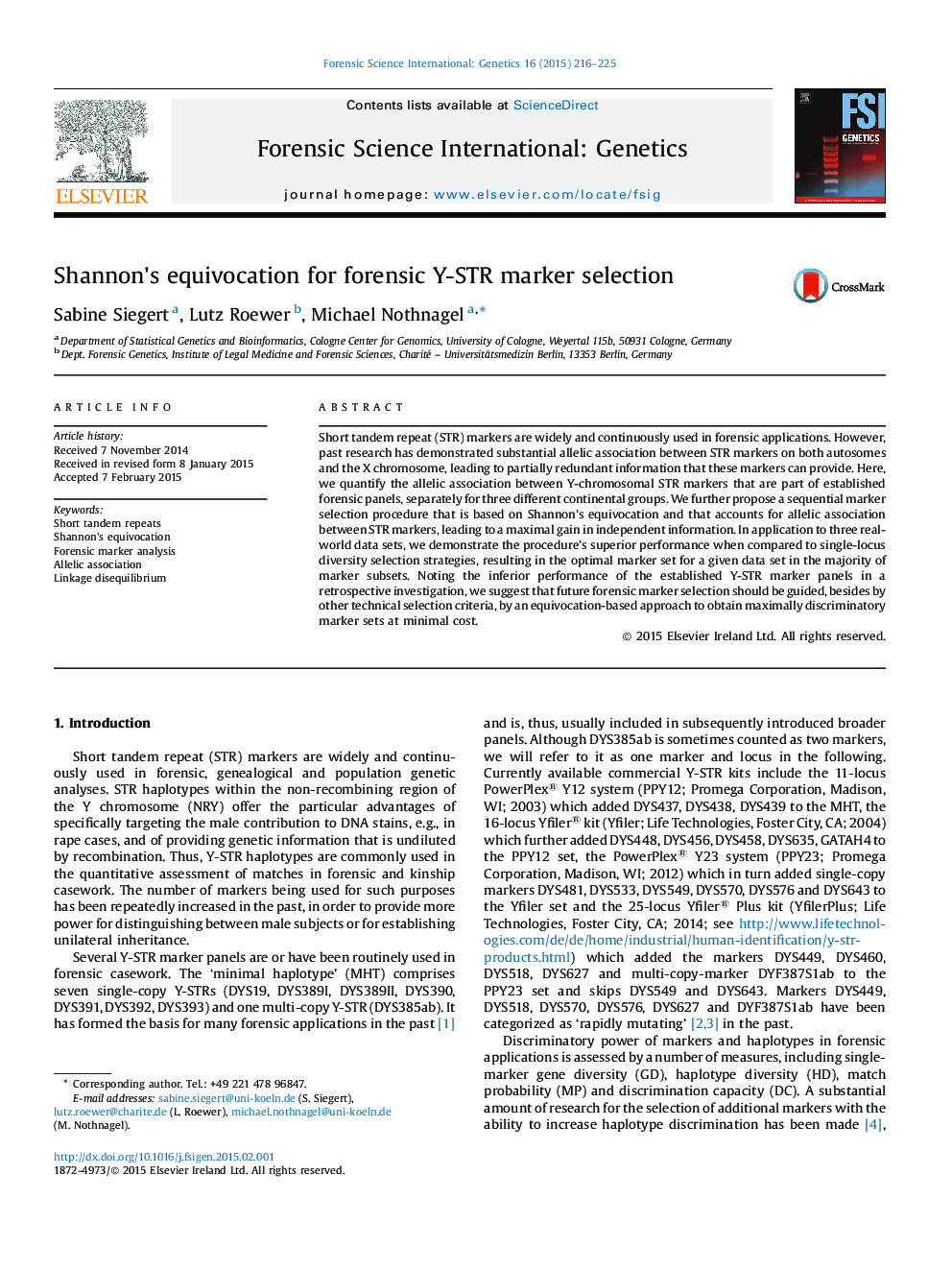| Article ID | Journal | Published Year | Pages | File Type |
|---|---|---|---|---|
| 6553790 | Forensic Science International: Genetics | 2015 | 10 Pages |
Abstract
Short tandem repeat (STR) markers are widely and continuously used in forensic applications. However, past research has demonstrated substantial allelic association between STR markers on both autosomes and the X chromosome, leading to partially redundant information that these markers can provide. Here, we quantify the allelic association between Y-chromosomal STR markers that are part of established forensic panels, separately for three different continental groups. We further propose a sequential marker selection procedure that is based on Shannon's equivocation and that accounts for allelic association between STR markers, leading to a maximal gain in independent information. In application to three real-world data sets, we demonstrate the procedure's superior performance when compared to single-locus diversity selection strategies, resulting in the optimal marker set for a given data set in the majority of marker subsets. Noting the inferior performance of the established Y-STR marker panels in a retrospective investigation, we suggest that future forensic marker selection should be guided, besides by other technical selection criteria, by an equivocation-based approach to obtain maximally discriminatory marker sets at minimal cost.
Related Topics
Life Sciences
Biochemistry, Genetics and Molecular Biology
Genetics
Authors
Sabine Siegert, Lutz Roewer, Michael Nothnagel,
